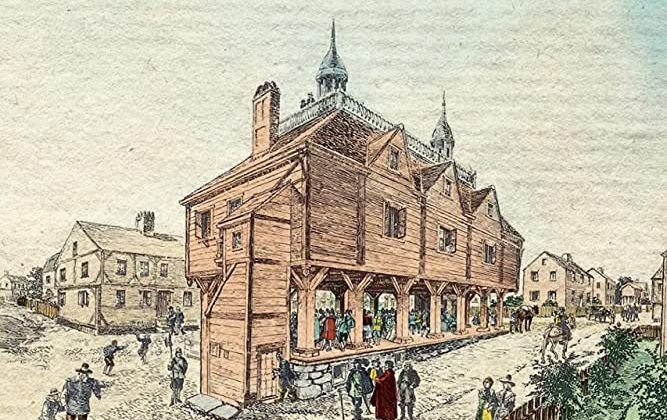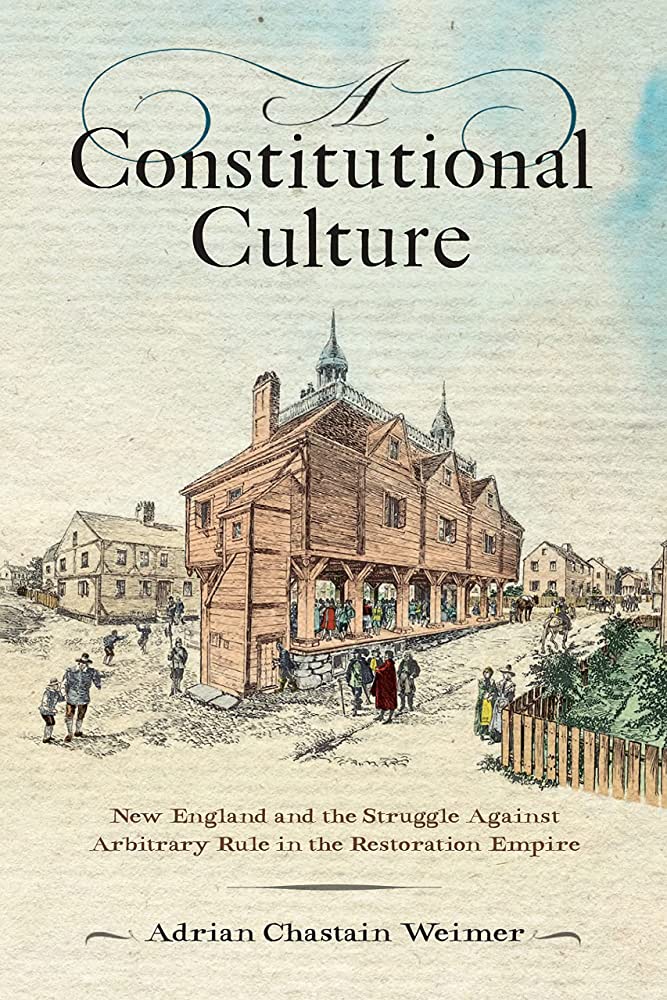

Adrian Chastain Weimer is Professor of History at Providence College. This interview is based on her new book, A Constitutional Culture: New England and the Struggle Against Arbitrary Rule in the Restoration Empire (University of Pennsylvania Press, 2023).
JF: What led you to write A Constitutional Culture?
AW: I’m interested in questions of accountability. Many kings, governors, and church leaders have ruled with impunity. It is fascinating how certain people have managed to draw lines that rulers cannot cross, and – through legal and social means – hold those in power accountable when they overstep.
JF: In 2 sentences, what is the argument of A Constitutional Culture?
AW: In the 1660s the absolutist-leaning monarch Charles II tried to pressure New Englanders to redesign local institutions according to imperial priorities. Drawing on the writings and methods of the English civil wars, colonists from across the social spectrum mobilized to defy royal commissioners, forging a robust and longstanding constitutional culture.
JF: Why do we need to read A Constitutional Culture?
AW: New Englanders’ grass-roots effort to articulate and contest arbitrary rule in the early Restoration era marks a crucial stage in the formation of Anglo-American political culture. It forms a bridge between the English civil wars of the 1640s and the overthrow of royal governor Edmund Andros in the 1680s. Many kinds of inhabitants – including Quakers and Shawomets – became involved in the political struggle, answering in creative and consequential ways what they owed to a distant ruler in balance with their obligations to the local community.
JF: Why and when did you become an American historian?
AW: I read the poetry of Anne Bradstreet in high school and was fascinated with her juxtaposition of late medieval spirituality, renaissance eclecticism, and rural family life. My parents wanted me to be a doctor, but even when I was taking organic chemistry in college I kept coming back to early modern writings. I finally realized I wanted to spend a great deal more time in Bradstreet’s seventeenth-century world.
JF: What is your next project?
AW: I’m co-editing the Works of Daniel Gookin, who wrote histories of Christian Native American communities, including their sufferings in King Philip’s or Metacom’s war. I’m also writing on Deer Island, where Christian Nipmuc and others were sequestered during the war, an episode that – in its longer history and aftermath – addresses central questions over the boundaries of colonial law, politics and religion.
JF: Thanks, Adrian!